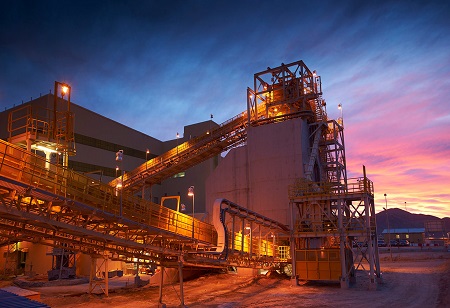Anglo-Australian mining giant BHP is making a massive investmenst in nickel, the critical material found in electric-vehicle batteries that is powering the next generation of vehicles.
The group signaled the pivot earlier this month by announcing it will spend 140 million Australian dollars ($96.6 million) over two years to explore untapped troves of nickel around an existing development.
"This year will be the highest annual spend for exploration in Nickel West since ... 2005," Jessica Farrell, asset president at BHP Nickel West, said in industry conference.
BHP followed up by issuing a plan to completely take over OZ Minerals, a midsize mining company specializing in copper and nickel. The proposed 8.3 billion Australian dollar deal sent shockwaves through the industry.
But OZ has declined the offer, saying that it undervalued the firm. The copper and nickel assets in OZ's portfolio are indispensable to the EVs that will promote decarbonization.
BHP CEO Mike Henry has so far expressed unwillingness to raise the offer, despite the speculation about competing bids for OZ.
"We will remain disciplined," Henry said in an Aug. 16 earnings call.
Behind BHP's aggressive push into nickel is the fact that the group has reached a major milestone in its yearslong journey of shedding fossil fuel assets.
As of June, BHP has divested the entirety of its petroleum and gas operations in Australia. This year, the company completed sales of thermal coal mines in Colombia and of its controlling interest in a coking coal joint venture with Japan's Mitsui & Co. BHP is due to shutter all thermal coal mines in Australia by the end of the decade.
The strong earnings as of late have given wind to BHP's sails. For the year ended June, its net profit multiplied 2.7 times to $30.9 billion. The incoming funds have helped promote investments in copper and nickel, which Henry has described as "future oriented" commodities.
Nickel accounts for less than 3% of BHP's most recent revenue, so the group is training its sights on the metal in anticipation of the rise of EVs.
"We expect that by 2030, around 60% of all car sales will be electric," Farrell said at the conference, with the share expected to rise to 90% in 2040. Because nickel is used to make EV batteries, demand for the resource is projected to double or triple in the next three decades compared to the past 30 years.
The pivot to nickel opens the door for BHP to lessen its exposure to the iron ore business and to Chinese sales. Iron ore contributed over 50% to revenue last year, up from around 30% in 2012. China generated 65% of revenue in 2021, more than double the 30% in 2012.
The global supply chain around semiconductors is being rerouted in response to Sino-U.S. tensions. When it comes to critical resources such as iron ore and non-ferrous metals, investors are poised to urge BHP in particular to develop a business model that is not overly reliant on Chinese demand.
During the Aug. 16 earnings call, Henry predicted that Chinese demand for steel will stagnate by the end of the decade.
"As we progress towards the middle of this decade ... we are moving into a plateauing phase for [China's] steel production, iron ore demand," said Henry.
BHP looks to expand its network of customers to the West as the company embraces nickel. In July, BHP and Ford Motor signed a memorandum of understanding for supply of the metal and deliveries could start as early as 2025.
In the EV business, automakers are shifting from being fully reliant on battery manufacturers to purchasing directly from mining companies, so that stable supplies of critical resources are maintained.
Last year, BHP entered into similar MOUs with Tesla and Toyota Tsusho, the Toyota Motor group's trading arm. Through these contractual arrangements, BHP will be able to engage with automakers in a flexible manner, facilitating customer development.
BHP's closest rivals are the Anglo-Australian player Rio Tinto and Brazil's Vale. However, Rio is a step ahead of BHP in terms of exiting fossil fuels and turning to EV commodities.
In 2018, Rio concluded the divestment of its entire coal interests, becoming the first major resource developer to field a fossil fuel-free portfolio. The company moved to invest in large-scale lithium projects in Serbia and Argentina.
Another challenge facing BHP is the competition to draw customers posed by Chinese and Indonesian companies, which are strong in terms of scale and cost of nickel production.
Tesla disclosed a list of 12 direct suppliers of EV battery materials for 2021. Five Chinese enterprises occupied the roster, indicating the level of confidence in China's supply capabilities.
Indonesia, the world's largest producer of nickel, is attracting new EV and battery plants built by Hyundai Motor and other multinationals. Both government and industry are working together to capture foreign direct investment and supply contracts.
